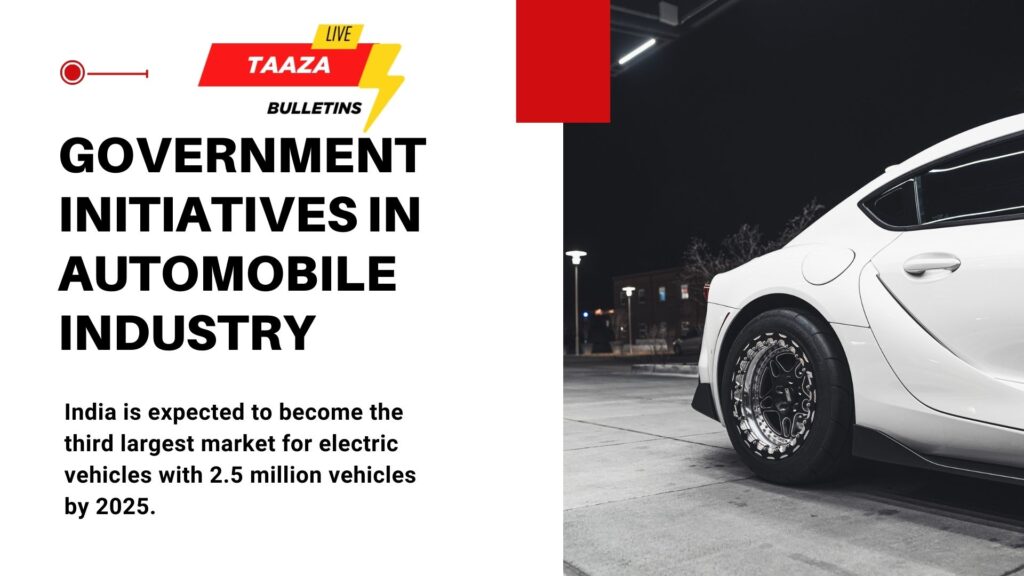As Shubhanshu Shukla prepares to become India’s second astronaut in space, the Axiom-4 mission’s repeated delays highlight the complexities of international space collaboration. Will this mission reshape India’s space ambitions and the global space race?
June 18, 2025, 1:08 PM IST
Table of Contents
Axiom-4 Mission The Core Incident

The Axiom-4 (Ax-4) mission, set to carry Indian astronaut Shubhanshu Shukla to the International Space Station (ISS), has been postponed to no earlier than June 22, 2025, marking its fifth delay, Axiom Space announced on June 18. Originally scheduled for May 29, the mission was delayed due to technical issues with SpaceX’s Falcon 9 rocket and leaks in the ISS’s Russian Zvezda module. Launched from NASA’s Kennedy Space Center in Florida aboard a SpaceX Crew Dragon, Ax-4 is a landmark commercial mission led by Axiom Space, featuring a multinational crew from India, Hungary, and Poland, symbolizing a return to human spaceflight for these nations after over 40 years. The latest postponement allows NASA and Roscosmos to evaluate recent Zvezda repairs, underscoring the mission’s reliance on aging ISS infrastructure and geopolitical cooperation.
History of the Axiom-4 Mission
Axiom Mission 4, the fourth private astronaut mission by Axiom Space, builds on the company’s vision to commercialize low Earth orbit (LEO) and establish a private space station by the late 2020s. Axiom Space, founded in 2016, partnered with NASA under its Commercial Low Earth Orbit Destinations (CLD) program to facilitate private missions to the ISS, starting with Ax-1 in April 2022. Ax-1, a 17-day mission, marked the first all-private crew to the ISS, followed by Ax-2 in May 2023, led by Peggy Whitson, and Ax-3 in January 2024, featuring an all-European crew, including Turkey’s first astronaut. Each mission expanded microgravity research, commercial activities, and international collaboration.
Ax-4, announced in 2023, was designed to include government-sponsored astronauts from India, Hungary, and Poland, marking their first ISS visits since Soviet-era Interkosmos missions (India in 1984, Hungary in 1980, Poland in 1978). The mission, costing India ₹550 crore ($66 million) for one seat, integrates with ISRO’s Gaganyaan program, aiming for independent human spaceflight by 2026. The crew, led by Whitson, includes Shukla as pilot and mission specialists Tibor Kapu (Hungary) and Sławosz Uznański-Wiśniewski (Poland). Ax-4 plans to conduct over 60 experiments across 31 countries, focusing on microgravity research in biology, materials science, and Earth observation, with India contributing studies on microalgae, muscle regeneration, and crop resilience.
The mission’s timeline was ambitious, initially set for October 2024, but shifted to May 29, 2025, due to coordination challenges among NASA, SpaceX, Axiom, and international partners. Training began in August 2024, with Shukla and backup astronaut Prasanth Balakrishnan Nair completing NASA’s astronaut program by April 2025. The mission’s significance lies in its role as a bridge to commercial space stations and a testbed for nations like India to gain ISS experience before independent missions.
Number of Postponements and Reasons
The Axiom-4 mission has faced five postponements, reflecting the technical and environmental challenges of spaceflight:
- May 29 to June 8, 2025: The initial delay stemmed from issues with the SpaceX Crew Dragon’s electrical harness, requiring additional inspections. This pushed the launch to June 8, allowing time for validation.
- June 8 to June 9, 2025: Falcon 9 vehicle readiness delays, including unresolved issues from the electrical harness and engine actuator anomalies, prompted a one-day postponement to June 9.
- June 9 to June 10, 2025: Unfavorable weather conditions in the ascent corridor, including high winds and potential lightning risks, led ISRO to reschedule the launch to June 10 at 5:30 PM IST.
- June 10 to June 11, 2025: A liquid oxygen (LOX) leak in the Falcon 9’s boosters was detected during a post-static fire test on June 8, alongside an engine actuator issue. ISRO, prioritizing crew safety, recommended in-situ repairs and a low-temperature leak test, delaying the launch to June 11. Concurrently, NASA reported a pressure anomaly in the Zvezda module, further necessitating caution.
- June 11 to June 22, 2025: On June 11, NASA confirmed ongoing concerns with the Zvezda module’s pressure stability post-repairs, alongside SpaceX’s resolution of the LOX leak. The launch was postponed to June 19, then further delayed to June 22 to allow NASA and Roscosmos to evaluate the module’s integrity. The crew remained in quarantine in Florida, maintaining medical protocols.
These delays highlight the mission’s dependence on SpaceX’s hardware reliability, ISS infrastructure, and weather conditions. ISRO’s insistence on rigorous safety checks, particularly for the LOX leak, played a critical role in ensuring crew safety, reflecting India’s growing influence in international missions.
Events Leading to Postponements
The postponements were driven by a series of technical, environmental, and geopolitical factors:
- Crew Dragon and Falcon 9 Issues: The electrical harness fault, detected in May 2025, required extensive diagnostics, as it could compromise the spacecraft’s systems. The LOX leak, identified on June 8, was critical, as LOX is a cryogenic fuel essential for Falcon 9’s thrust. SpaceX’s initial “band-aid” fix was rejected by ISRO, which demanded thorough repairs, validated by a low-temperature test. An engine actuator anomaly, discovered concurrently, necessitated replacements, further delaying preparations.
- Zvezda Module Leaks: The Russian Zvezda module, operational since 2000, has faced recurring leaks since 2019, monitored by NASA and Roscosmos. A new pressure signature, detected on June 11 after repairs sealed a transfer tunnel, raised concerns about long-term stability. Cosmonauts’ inspections confirmed stable pressure, but NASA’s cautious approach delayed Ax-4 to ensure no risks to the ISS crew or incoming astronauts. This reflects broader U.S.-Russia tensions, exacerbated by the Israel-Iran conflict, impacting space cooperation.
- Weather Conditions: Florida’s unpredictable June weather, with risks of thunderstorms and high winds, disrupted launch windows on June 9 and 10. Launch windows to the ISS, which orbits at 400 km and requires precise fuel-efficient trajectories, are frequent but sensitive to weather in the ascent corridor.
- Coordination Challenges: The mission’s multinational nature required alignment among NASA, SpaceX, Axiom, ISRO, ESA, and the Hungarian Space Office (HSO). ISRO’s technical reviews, particularly on June 10, emphasized safety, while NASA’s oversight of ISS operations added complexity. Roscosmos’s role in Zvezda repairs further slowed decision-making, reflecting the ISS’s collaborative yet fragile governance.
These events underscore the mission’s vulnerability to technical failures, aging ISS infrastructure, and geopolitical dynamics, with India’s proactive role in safety advocacy setting a precedent for future missions.
Indian Involvement in Axiom-4
India’s participation in Axiom-4 marks a historic milestone, with Group Captain Shubhanshu Shukla, an Indian Air Force pilot and ISRO astronaut, set to become the second Indian in space after Rakesh Sharma’s 1984 Soviet mission. Selected as mission pilot, Shukla, alongside backup astronaut Group Captain Prasanth Balakrishnan Nair, completed NASA training in April 2025, costing India ₹550 crore for the seat. The mission, formalized after India signed the Artemis Accords in June 2023, integrates with ISRO’s Gaganyaan program, providing critical experience for India’s planned 2026 human spaceflight. Shukla will conduct experiments on microalgae, muscle regeneration, cognitive effects of screen use, and crop resilience, developed by ISRO and Indian institutions like the International Centre for Genetic Engineering and Biotechnology. His 14-day ISS stay will enhance India’s space capabilities, boost its $12 billion space economy, and position ISRO as a key player in commercial space, while fostering Indo-U.S. collaboration amid regional tensions with Pakistan.
Stakeholder Reactions
Indian Government and ISRO: ISRO Chairman V. Narayanan praised the delay decisions, stating, “Safety and mission integrity remain our top priorities.” Union Minister Jitendra Singh shared updates on X, emphasizing India’s role in ensuring robust repairs. ISRO sees Ax-4 as a stepping stone for Gaganyaan and a $447 billion space market by 2033.
NASA and Axiom Space: NASA underscored the need for ISS operational stability, deferring Zvezda questions to Roscosmos. Axiom Space confirmed the crew’s high spirits in quarantine, highlighting the mission’s 60+ experiments across 31 countries. Both avoided geopolitical commentary but stressed safety.
Russia: Roscosmos minimized the Zvezda leaks as “routine,” but X posts from Russian users framed NASA’s delays as political, reflecting U.S.-Russia strains amid the Israel-Iran conflict.
Public Sentiment: Indian X users, like @isro and @BharatSpaceX, celebrated Shukla’s role but expressed frustration over delays, with some, like @Chethan_Dash, noting the ₹413 crore investment. Globally, space enthusiasts on X, such as @SpaceWatchGL, raised concerns about the ISS’s aging infrastructure, urging new platforms.
Experts: Analysts like Namrata Goswami emphasized India’s need for independent space stations, while Vitaly Egorov highlighted ISS maintenance challenges. Michael Kugelman noted Ax-4’s diplomatic value for Indo-U.S. ties, despite India’s rejection of U.S. mediation in Pakistan tensions.
Short- and Long-Term Impacts
Short-Term: The delays disrupt India’s space timeline, delaying Shukla’s 14-day mission and experiments critical for Gagany



